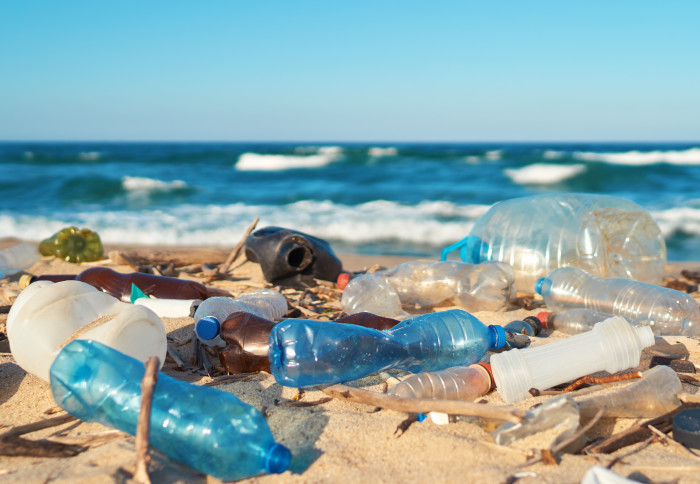Policy tool could help governments cut plastic pollution by 85 percent

Credit: Shutterstock
A new policy tool developed by scientists could help governments to dramatically cut plastic waste, a study has found.
The research, published in the journal Global Environmental Change, shows that a tool known as Plastic Drawdown is set to help the Maldives reduce plastic waste by 85 percent by 2030, prompting calls from experts for the tool to be adopted by other countries.
Plastic Drawdown is a rapid assessment tool, originally conceived by the international social enterprise Common Seas, that is designed to help countries with limited data explore solutions to minimise plastic pollution.
It aims to map and model a country’s plastic waste, identify solutions to cut waste and help to produce strategies with key stakeholders for effective action.
The study, which was co-authored by experts at Imperial College London, the University of Oxford, Eunomia, Nekton, the Government of the Maldives and Common Seas, hopes to give governments the confidence and evidence-base needed to create policies to cut plastic waste.
“The first steps to address data gaps are to articulate them within an operational framework and provide the rationale for immediate action.” Dr Arturo Castillo Castillo Research Fellow at the Centre for Environmental Policy
The tool showed in the Maldives how five policy solutions could be used to prevent up to 85 percent of plastic pollution by 2030, giving the country’s government the necessary evidence and confidence to implement a strategy to phase out single-use plastic.
Currently, 35 percent of the world’s most plastic polluting countries do not have any policies to address the issue of waste, while a further 20 percent are only targeting the use of plastic bags.
Dr Arturo Castillo Castillo, Research Fellow at Imperial’s Centre for Environmental Policy, who was involved in the research and conceptualisation, said: “I am delighted to have been a part of this collective effort to provide guidance for island nations starting from situations of scarce data.
“The first steps to address data gaps are to articulate them within an operational framework and provide the rationale for immediate action.”
Decisive action needed
Plastic pollution in the world’s oceans is set to quadruple by 2040 without decisive action from governments to curb the problem.
More than 120 governments, including the UK, are calling for a new global agreement to end such pollution to be negotiated at the Fifth Session of the United Nations Environment Assembly (UNEA-5) in February and March 2022.
A spokesperson for the President of the Maldives, Ibrahim Mohamed Solih, said: “Plastic Drawdown was critical in building the case for phasing out single-use plastics across the Maldives.
“The model gave the Maldivian government the confidence to set an ambitious target to phase out single-use plastics by 2023, as announced by President Ibrahim Mohamed Solih at the UN General Assembly in 2019.
“Common Seas delivered not only solid evidence for what we could achieve, but also practical advice on how to achieve it.”
Common Seas CEO Jo Royle added that more than half of the world’s countries most affected by plastic pollution do not have an “adequate plan” in place to tackle the problem.
She said: “The Maldives, a beautiful island group tainted by the curse of plastic waste, is showing ambition and real leadership on this issue.”
Article text (excluding photos or graphics) © Imperial College London.
Photos and graphics subject to third party copyright used with permission or © Imperial College London.
Reporter
Conrad Duncan
Communications Division